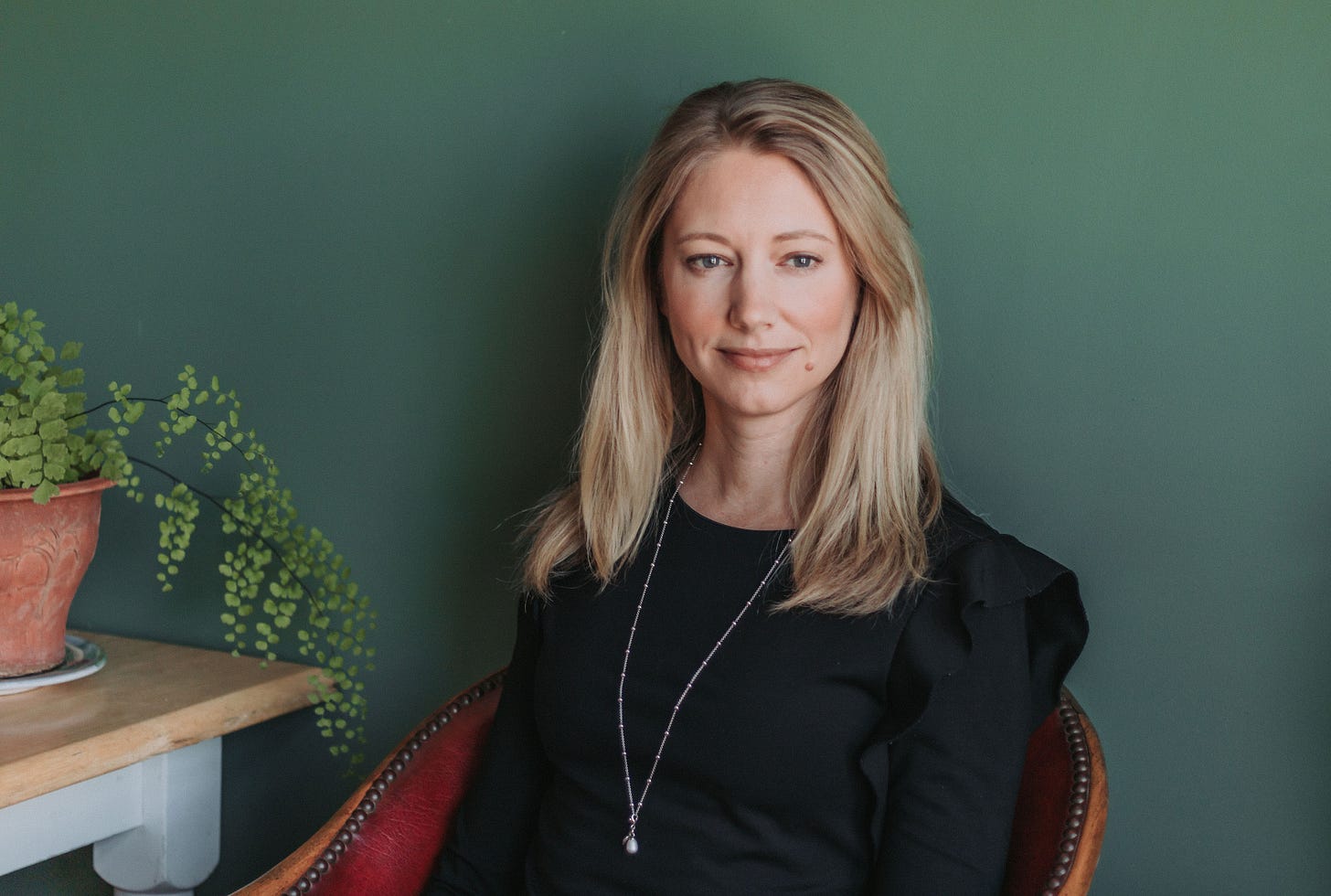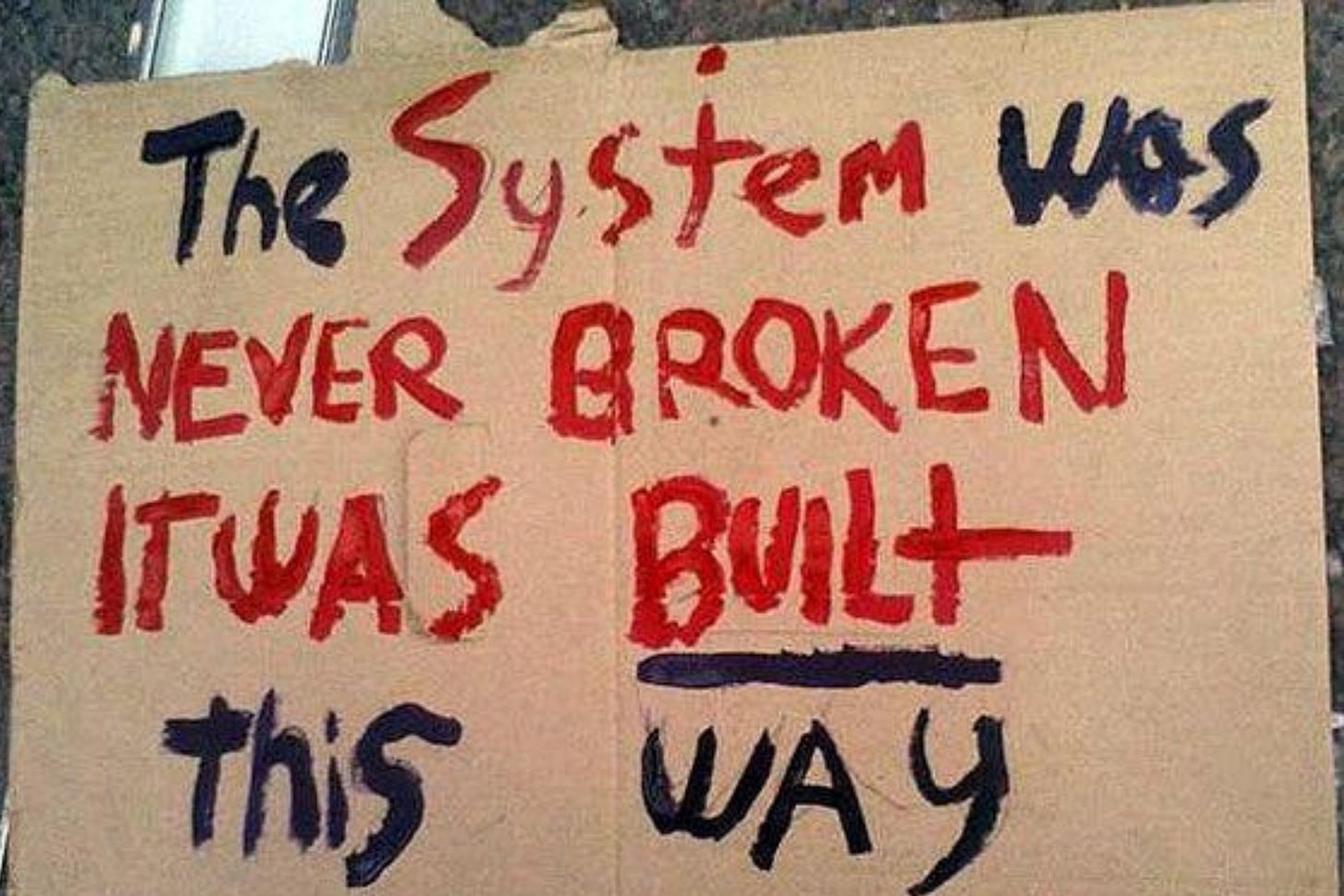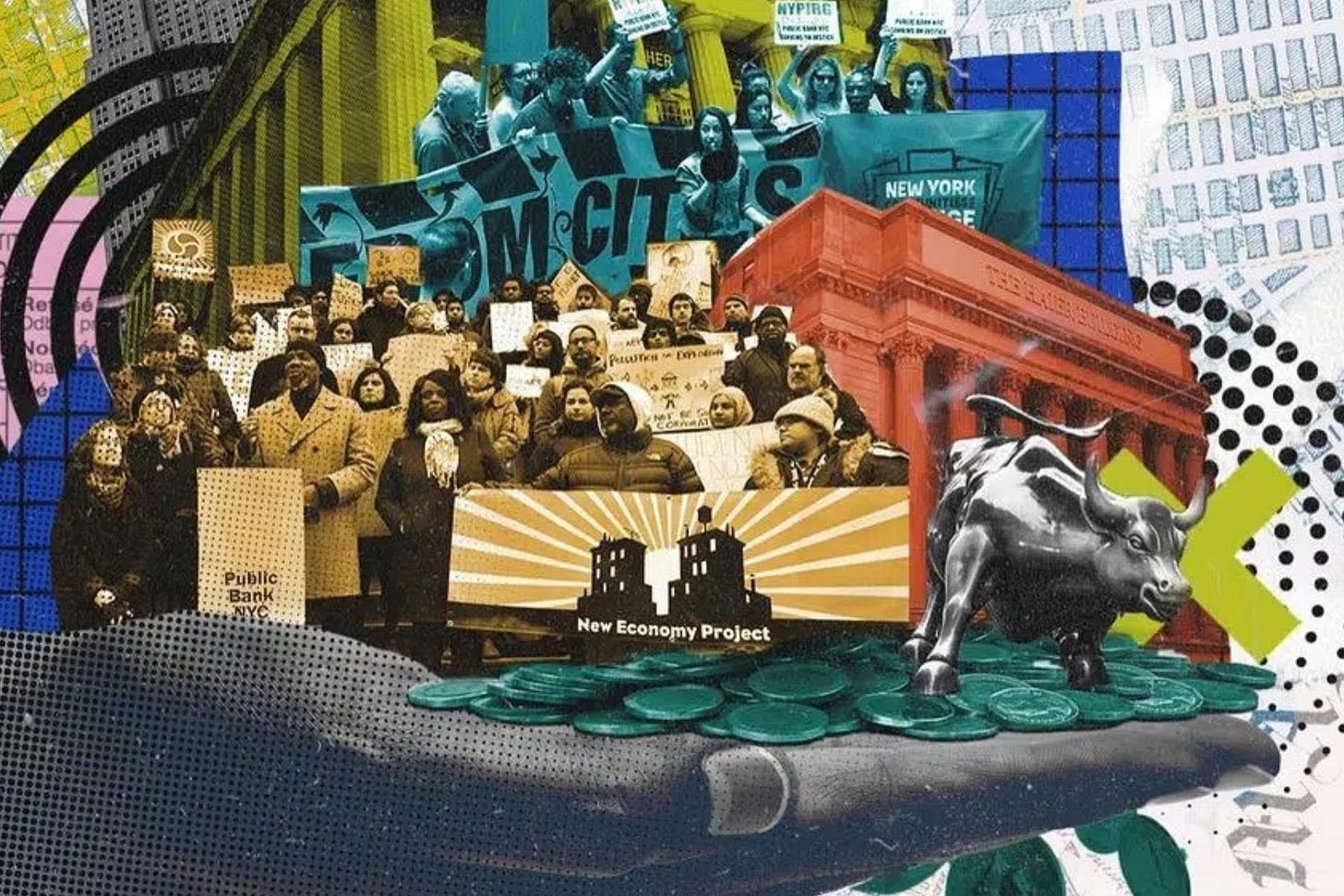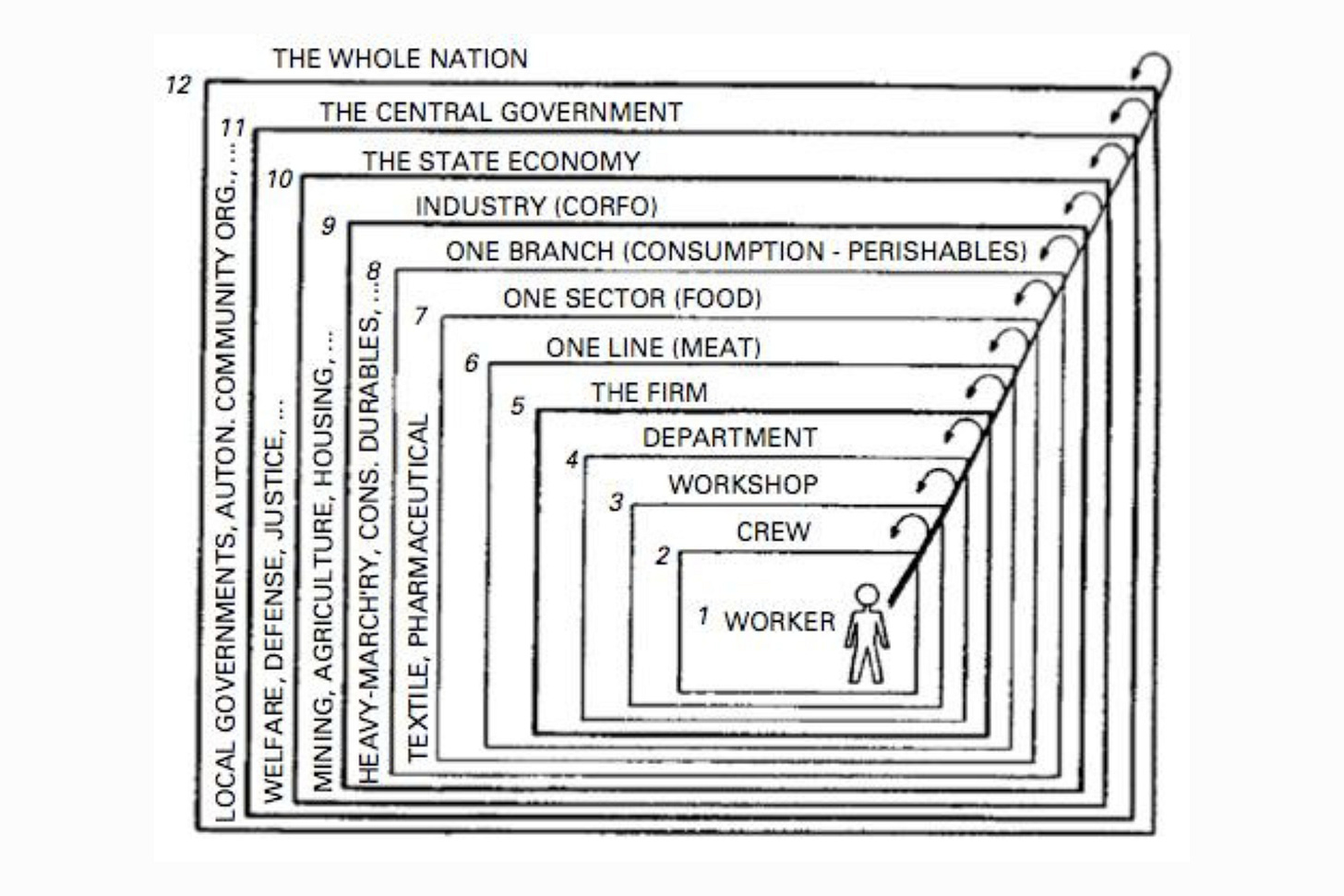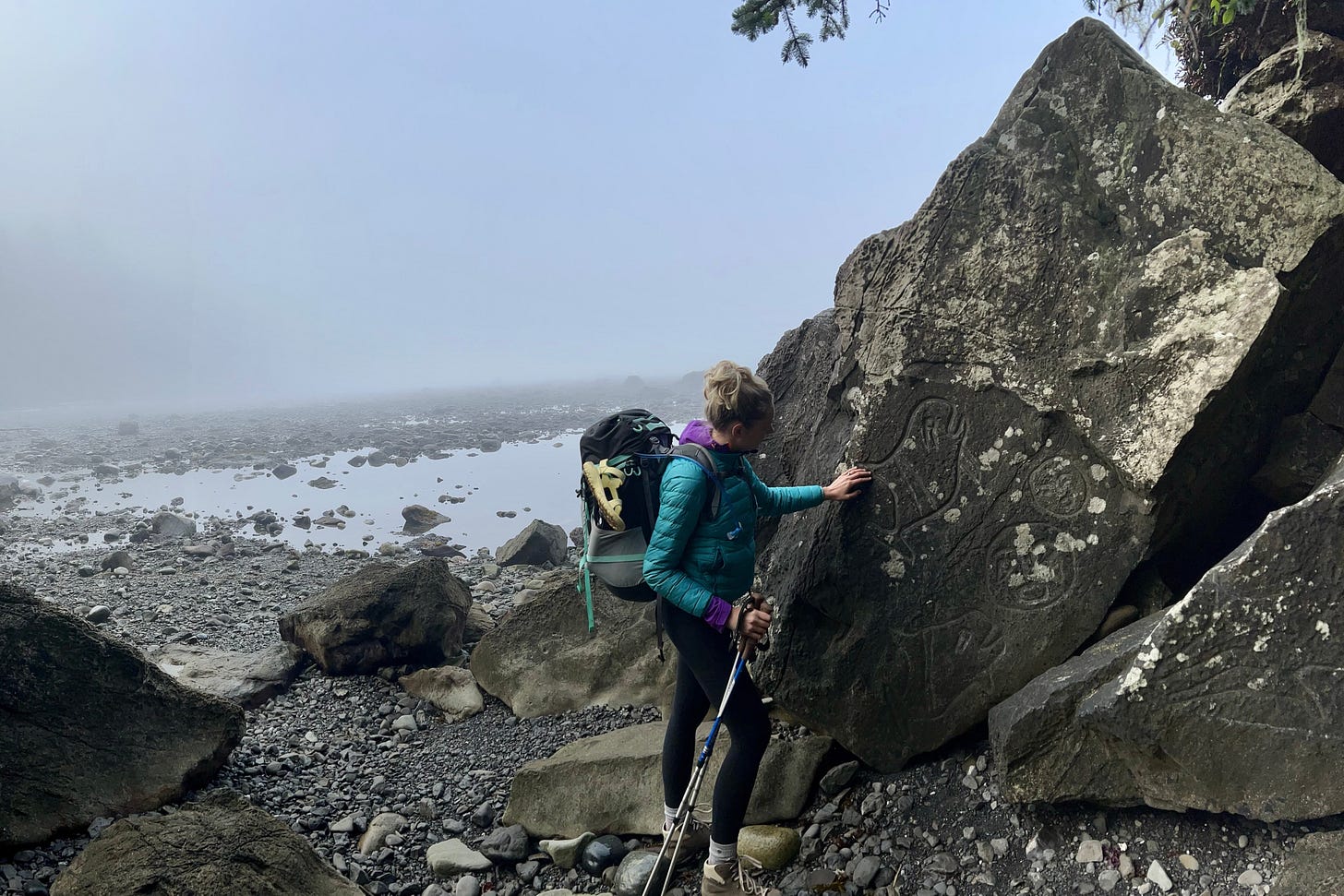Restoring Diversity in Embodied Economics with Denise Hearn
Redefining profit, rebalancing wealth, and reorienting our models of growth.
Denise Hearn is an author, applied researcher, and advisor focused on how economic power and paradigms shape our world. She advises governments, financial institutions, companies, and nonprofits on antitrust, economic policy, and new economic thinking.
Denise co-authored the book The Myth of Capitalism: Monopolies and the Death of Competition with Jonathan Tepper, which was named one of the Financial Times’ Best Books of 2018. She is currently a Resident Senior Fellow at the Columbia Center on Sustainable Investment, a joint center of Columbia University Law School and Columbia Climate School. Her new book, The Big Fix is out October 2024.
As we explore and work towards new economic models, it’s crucial to understand how economics and areas of economic policy – like antitrust and competition policy – intersect within our current system.
Enforced policy, like antitrust law, play a fundamental role in regulating competition and protecting against market abuses within the framework of capitalism. These laws are designed to prevent monopolistic practices and anti-competitive behavior, ensuring that markets remain dynamic and competitive. By doing so, they aim to promote innovation, fairness, and protection for consumers, workers, and independent businesses.
While antitrust laws are instrumental in mitigating some of the excesses of capitalism, they also reveal its limitations—such as persistent inequalities and inefficiencies that these regulations alone cannot fully address. This understanding serves as a foundation for reimagining and developing alternative economic models that might offer more comprehensive solutions to these systemic issues, paving the way for a more equitable and sustainable economic future.
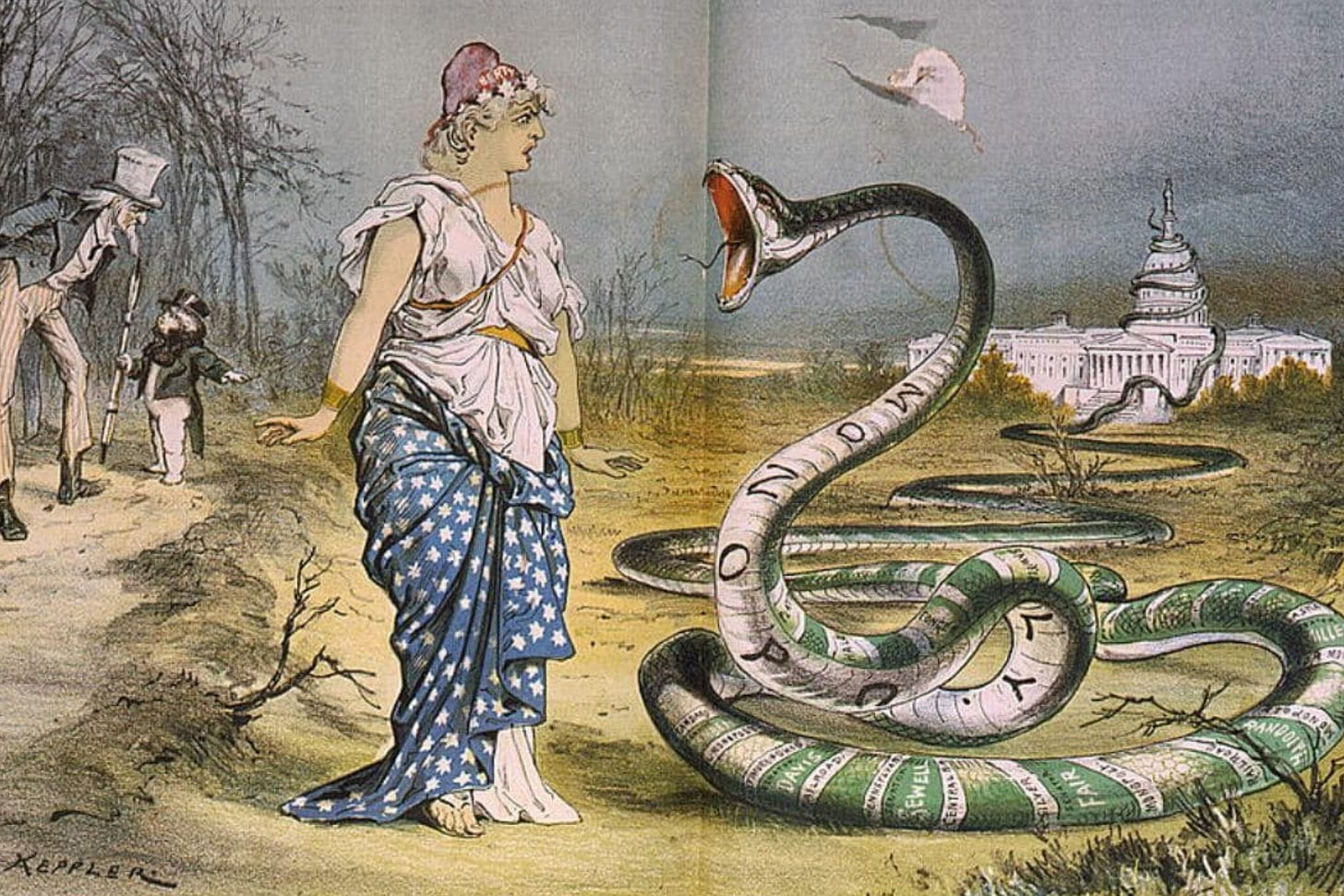
INL: For anyone that hasn’t read The Myth of Capitalism, could you share an overview of what it dives into? Is there anything you would add now, 6 years on?
Denise: The Myth of Capitalism is about the core myth of western capitalism: that markets are free and competitive. What we show is that over the last four decades in the US (and my other global jurisdictions), markets have become increasingly concentrated through waves of mergers and acquisitions that regulators largely waved through. That means that now monopolies1 and oligopolies2 control nearly every industry – some locally, some globally. This harms workers with lower wages, consumers who pay higher prices, and independent businesses who struggle to access fair markets and scale their innovations.
Luckily, a lot has changed in 6 years! There is a renaissance in antitrust enforcement in the US, Canada, Europe, South Africa, and other countries. In the US, the Biden administration made competition policy a key pillar of its economic agenda. The Admin appointed Lina Khan as head of the Federal Trade Commission (FTC) and Jonathan Kanter at the Department of Justice, Antitrust Division (DOJ), who are both strong anti-monopoly advocates. There is also bipartisan support in some areas for stronger antitrust enforcement to hold companies accountable when they act in anti-competitive ways or try to acquire too many smaller or rival companies. As long as we have markets, we need to ensure they operate on the fairest terms possible and antitrust, though wholly insufficient on its own, is one of the strongest policy levers we have to rebalance power across the economy.
In addition to policy, we need to think much more critically about how and where we should use market mechanisms, the limitations of markets, how to reconceptualize the very notion of profit, and orient our economic system goals towards productive, not destructive, growth. Some of the paradigms on which our economy rests must change in profound ways.
INL: How do you envision integrating the renewed focus on antitrust enforcement with broader economic strategies to address issues such as equitable growth and rising inequality?
What does the process of implementing such policy changes look like, and can you provide examples of where these approaches have been successfully applied?
Denise: Antitrust is one segment of what I would more broadly call anti-monopoly policy, or predistributive policy. What I mean is that we tend to focus on rebalancing wealth after it has already accumulated, through redistributive policies like taxation. But actually fixing market structures so that they predistribute wealth more widely from the beginning, is an important element of keeping our economy healthy and vibrant for everyone.
Predistributive policies aim to increase access to opportunities for a wider set of people and to give more bargaining power to workers, consumers, and the public. These policies can be in everything from housing policy to education to government support for startups. Mandating open-source policies, common carrier rules, free licensing of critical intellectual property, and so on are ways to level the playing field and create more innovation in markets. And these are ways of generating more wealth for a wider set of players than just the dominant firms of today.
There are a number of ways that policymakers can apply antitrust law to protect us from abuses and to give us more freedom. For example, the FTC has proposed a noncompete ban across the entire US which they estimate would give $300 billion back to workers each year. Many workers are now under noncompete agreements, meaning that if they leave their job, they are barred from going to a rival company. While this may make sense for senior executives that have company trade secrets, noncompetes were increasingly applied to fast food workers, janitors, and even hair dressers as a way to limit their mobility and suppress their wages. We’ll see if the proposed noncompete ban survives legal challenges.
Other examples include going after price fixing in the agriculture industry, suing Big Tech companies like Google, Meta, Apple, Microsoft, and Amazon for monopolization or anticompetitive behavior, looking into aggressive personalized pricing techniques that companies use to charge us different amounts for the same thing, and so much more! The agencies are also responsible for consumer protection, including guarding against deceptive marketing claims. They are currently updating guidance on how companies can market their environmental and sustainability claims so there is less greenwashing with products or services.
INL: “Normative authority” refers to justification for the norms, rules, and values that govern us. How can we establish new sources of normative authority that prioritize well-being, equity, and environmental regeneration in shaping a new economic system?
Denise: “Normative authority” is an academic way of saying that there is a collective agreement about what is morally or socially acceptable, and that gets institutionalized through our legal systems. We first create social and moral judgements about how to ascribe value in the economy, and we codify it in law – we allocate the law around the protection of those judgements.
The more you dig into any topic, the more you realize that our systems are simply judgements we’ve made about how to do things as humans. For example, GDP (gross domestic product), was introduced by a Russian-American economist named Simon Kuznets following the Great Depression. As policymakers struggled to understand and have accurate measurements for economic activity in the US, Kuznets came up with a way of aggregating production measures. But he warned in 1934 that “The welfare of a nation can scarcely be inferred from a measure of national income” and encouraged policymakers to not overly rely on the metric. Well, we did exactly the opposite, and today GDP still reigns supreme as a way of measuring a nation’s economic growth, despite many proposed alternatives.
However, I think eventually there will be a critical mass or shock to the system which requires new tools to be adopted, and alternative options – whether proposed or active experiments in other countries – can step into the gap. Though I don’t often quote Milton Friedman, I do agree with him that: “Only a crisis - actual or perceived - produces real change. When that crisis occurs, the actions that are taken depend on the ideas that are lying around. That, I believe, is our basic function: to develop alternatives to existing policies, to keep them alive and available until the politically impossible becomes the politically inevitable.”
INL: You’ve said “the system is resilient to change because it is an emergent system that has been co-created out of our own fractured thought patterns”. Do you have ideas for how to bring our collective thoughts into a unified harmony?
Denise: I don’t know that we need to have a unified system of thought. One of the hallmarks of life is diversity – we see that in natural systems, and in human systems. Diversity is a precondition for, and an active contributor to, a thriving ecosystem. We know that when we look at how monocultures destroy soil integrity, or how community life and economic health weakens when the monoculture of concentrated corporations move into small towns and take over main street.
One of the hallmarks of life is diversity – we see that in natural systems, and in human systems. Diversity is a precondition for, and an active contributor to, a thriving ecosystem.
Greater diversity in our systems leads to better resilience. The recent Crowdstrike outages (which messed up my flights!) make this clear – the more reliant we become on one or a few companies, the more susceptible we can become to single points of failure. Sometimes, redundancies are necessary – even in our own body. So in general, I think diversity of thought is really important.
What I mean when I say our fractured thought patterns have created issues is that we tend to see division where there is actually cohesion, and vice versa. The physicist David Bohm wrote about this in his book Thought as a System3. We divide the world into disciplines or fields of study, when really the world is a grand system of systems, comprised of different contexts which overlap and inform one another. The more we are able to reject false divisions (like partisan rhetoric), and embrace areas of true cohesion, the more we will be able to make wiser decisions about how to govern our systems. I really love Dr. Melanie Goodchild’s work on Relational Systems Thinking4 for those wanting to go deeper into some of these themes.
INL: Have you always felt a connection to and concern for our planet, or was there a specific turning point for you?
Denise: Since age 12, my parents sent me to a summer camp in Canada every year. That was my first, sustained experience feeling close to and connected to nature. Sometimes a little too close – those mosquitos had no mercy! But when I lived in Calgary, Alberta in my 20s, I fell in love with the Rocky Mountains and did a lot of backpacking and hiking. I began to understand, in a more integrated way, that I am nature and there is no separation between my continuation and all of life that inhabits this planet. Being in the mountains, in particular, reminds me that I exist in an unfathomably long chain of life. Perhaps I can share a poem I wrote below, which tried to capture this feeling. Many other similar small ‘conversions’ have only deepened this conviction and my understanding of this profound truth. Figuring out how to hold this conviction, while living in our systems as they are today, is not easy. It will be a life-long journey.
Nature does not ask of me
Nature does not ask of me
My title, my race, my accumulated worth
Nature asks only that I return my body, broken and fully inhabited
Back to her waiting process of cyclicality.
Nature sees me for what I am — a burst of energy,
built on generations of combinations
of energy and gasses and mineral and bacteria
No more and no less.
The cougar sees only the taut flesh separating head from body
As a canvass to engulf with sharpened teeth.
Her, and her children’s, eternal hunger the artist’s brushes
Which paint the sky with their hot breath.
The mitochondria see only an opportunity to transmute
The body of one creature into mine, and then into the next
As bodies shape-shift life apparitions through time
Oscillating, bending, binding, unwinding.
That I, may take my place among all the lineages of life,
one link on a long, interconnected
and multi-dimensional chain of being
Through which we all pass like water.
Crashing and craving
Destroying, delivering, dancing
while we are awake.
INL: You’re currently writing your next book titled “The Big Fix”, which is focused on Canada. Are the solutions you propose applicable beyond Canada? Is there anything you can share with us now?
Denise: One of the themes of the book is that companies, and markets, are changing and our policy frameworks must adapt to those changes. For example, there is a lot of hype about AI and how transformative it will be for society, which is likely to be true in some areas. But the biggest firms on the planet are best positioned to take advantage of their dominance in this area, and we have existing laws that can deal with abuses of market power, or infringement of privacy laws, copyright laws, and others. We should not let the promise of a new technology distract from the harms being perpetuated today. We can use existing tools and procedures to support a more equitable roll-out of new technologies.
But more broadly, what I hope people take away from the book is that markets are not esoteric things divorced from social norms and democratic structures. Private markets are dependent on the state for their existence and operation. Every firm is given its license to operate by the state, and any form of property rights, including the rights of capital holders or investors, is enforceable by the state. Legal scholar Katharina Pistor’s groundbreaking book The Code of Capital: How the Law Creates Wealth and Inequality5 is fantastic on this.
Every economy in the world is a blended system on some sort of spectrum between free markets and total state control. Whether it’s public-private partnerships, subsidies, tax incentives, industrial policy and state investment, intellectual property law, and so many others, the state plays an active role in crafting and shaping the direction of markets. In other words, markets have rules and we can let those rules be set by private companies or we can set those rules ourselves, democratically.
INL: Whilst we imagine (and speak) a new economic paradigm into existence, what specific policy proposals or initiatives do you recommend we follow and support?
Denise: There are too many to name here! But in general, new policies that support employee ownership or “steward” ownership initiatives6, better antitrust / anti-monopoly enforcement, big industrial policies like the Inflation Reduction Act7 which incentivize more investment in the climate transition, policies which support caregiving infrastructure8, worker’s rights9 and collective bargaining10, and so many others!
Pick something you care about, and let’s make it happen together – whether it’s locally, at the state level, or federally (or some other level of organization). It all matters tremendously, and there’s already so much incredible work being done.
You can learn more about Denise Hearn’s work at denisehearn.com, by watching her Long Now talk, and by reading The Myth of Capitalism and The Big Fix (Pre-Order).
Monopolies exist when a single seller controls the market for a particular good or service. This lack of competition allows the monopoly to set high prices and limit production, often leading to reduced consumer welfare.
Oligopolies arise when a small number of sellers dominate a market. Oligopolies can behave similarly to monopolies, but there is some level of competition between the few firms. They may act independently or collude (work together) to set prices and limit production.
Thought as a System by David Bohm.
Relational Systems Thinking by Dr. Melanie Goodchild.
Employee Ownership and Steward Ownership are models of business ownership that emphasize shared responsibility and long-term sustainability, as opposed to traditional profit-maximizing approaches.
The Inflation Reduction Act (IRA), passed in August 2022, represents a significant effort to address the economic pressures of inflation and enhance stability within our current system.
Caregiving Infrastructure includes services, policies, and resources that support individuals needing care and their caregivers.
Worker's Rights are the legal protections ensuring fair wages, safe working conditions, non-discrimination, and the right to join unions. They aim to safeguard employees from exploitation, ensure equitable treatment, and promote a respectful work environment.
Collective Bargaining involves representatives of a group of employees (often a union) negotiating with the employer on behalf of the entire group. The goal is to reach a collective agreement that outlines various aspects of employment, including wages, benefits, working hours, job security, and other workplace conditions.



